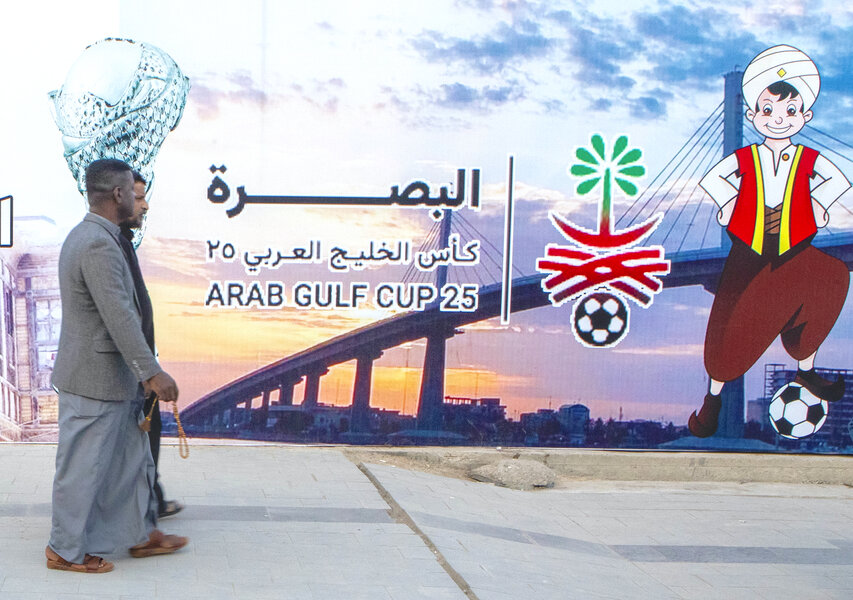An Arab soccer tournament tackles corruption
Loading...
For decades, the governing body of world soccer, FIFA, has banned international competitions in Iraq, citing corruption and security concerns. That ban ended today with the opening match of the eight-nation Gulf Cup in Iraq, nearly 20 years after the U.S.-led ouster of dictator Saddam Hussein.
For much of the Arab and Islamic world, Iraq’s hosting of the Gulf Cup over two weeks marks at least some progress against corruption and toward honest governance.
“It is a step forward to retain Iraq’s normal position in the fields of sport, culture and society,” Asaad Al-Eidani, the governor of Basra province where the Gulf Cup is being held, told Al Arabiya television. “It is a message to the whole world that we are capable.”
Iraq has an above-average democracy for Middle East Muslim countries, yet three years after anti-corruption protests toppled a corrupt government, new leaders have done only a little to reform a governing system almost designed to siphon off public wealth for the private gain of political parties.
Across the region, nearly 90% of people say corruption is widespread in their countries, according to the 2022 Arab Opinion Index. Yet despite political setbacks since the 2011 Arab Spring, nearly three-quarters in the region want a democratic system.
About 90% of Arabs also describe themselves as religious. That may explain why the 57-member states of the Organization of Islamic Cooperation (OIC) agreed in December at a meeting in Saudi Arabia to assist one another in preventing, investigating, and prosecuting corruption crimes. Recent protests against corruption in Islamic countries have put pressure on leaders to attempt reforms, especially to attract graft-wary foreign investors.
The OIC adopted what is called the Makkah Al-Mukarramah (“Holy City of Mecca”) Convention. It commits members to set up a general secretariat and smooth cooperation among law enforcement officials. The OIC is the second-largest international organization after the United Nations and considers itself to be “the collective voice of the Muslim world.”
To deal with corruption, many Islamic scholars have begun to emphasize the need for Muslims to better practice moral virtues with “transcendent” accountability. “This could happen through the spiritual factor in every realm of human activity to harmonize with the goals and values of Islam,” wrote three Malaysian academics in a 2020 Journal of Financial Crime paper. They cited scripture that states Allah “created you ... of like nature, His mate.”
For the soccer teams playing this month in the Gulf Cup, their mere presence in Iraq reflects a regional desire for honesty and transparency in leaders. “The Gulf Cup has put a smile on many Iraqi faces, and after years of suffering they surely deserve it,” wrote journalist Ahmed Twaij in Arab News. “Hosting the tournament is not just about the football, it is about the progress and stability of Iraq that it symbolizes.”





